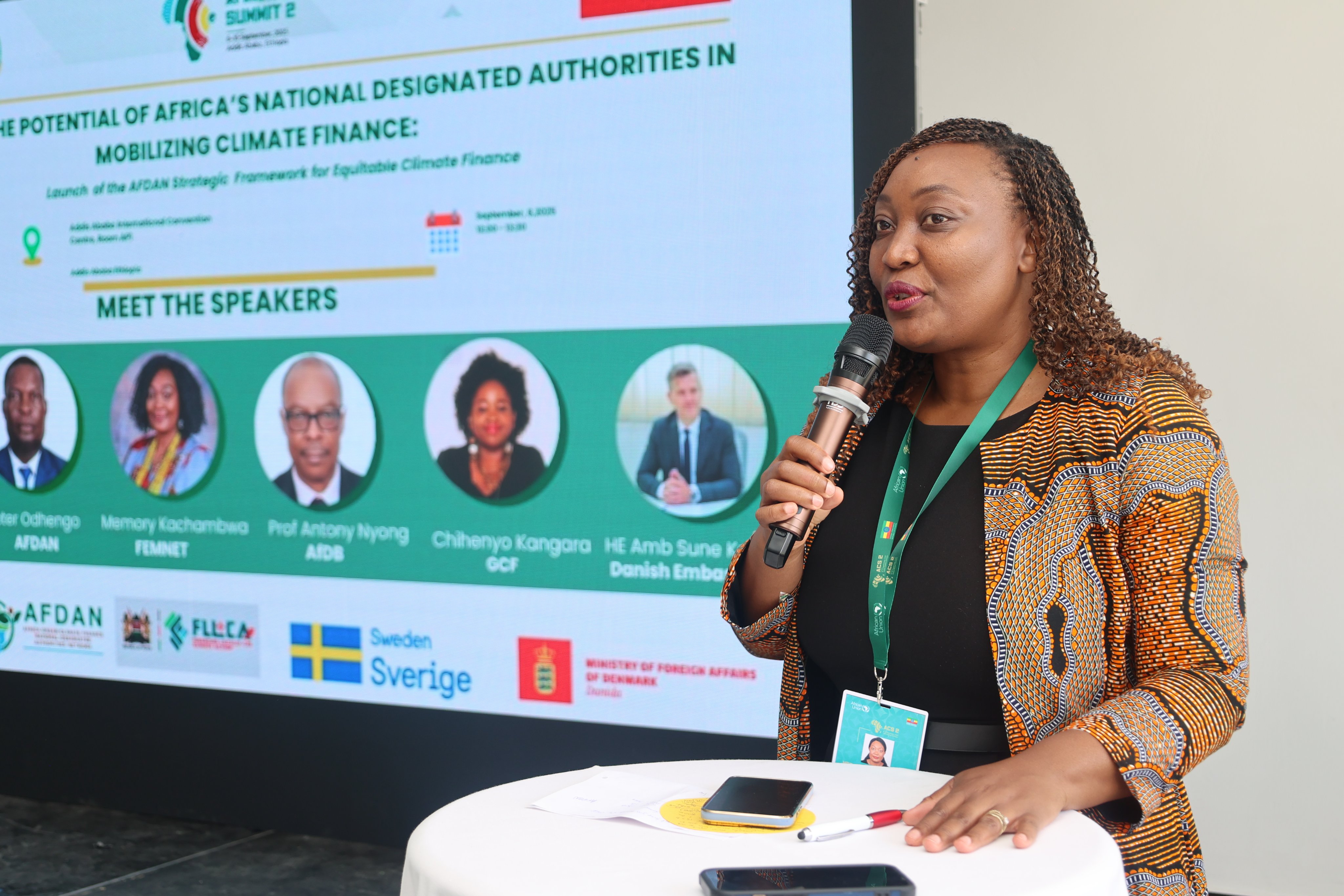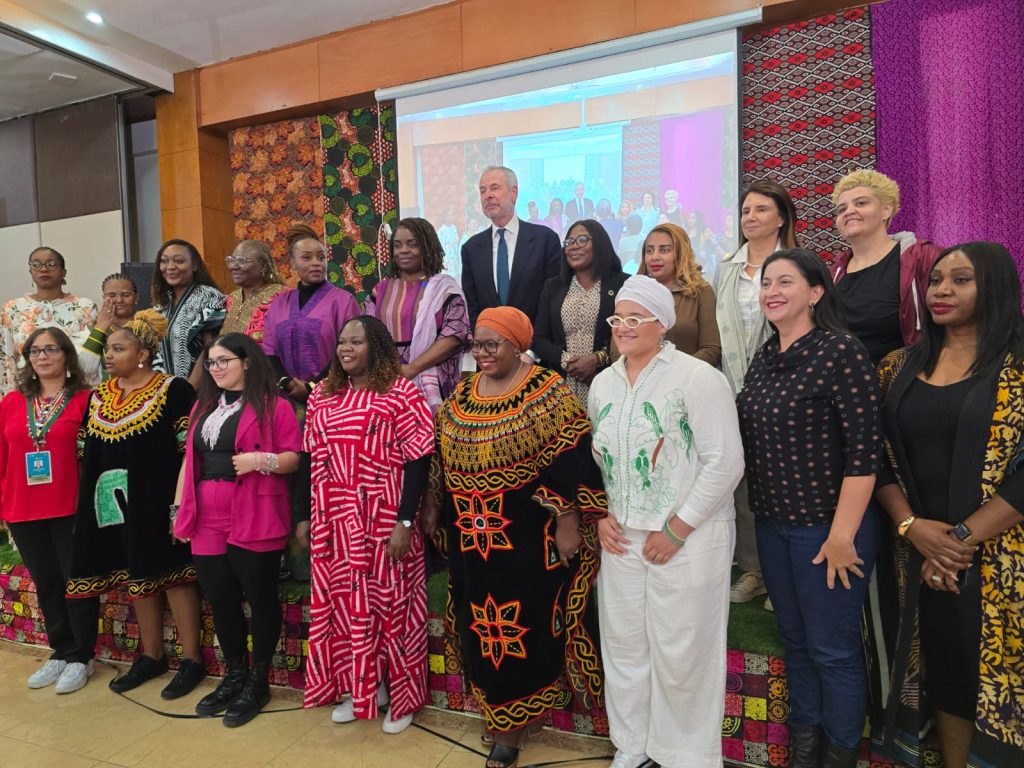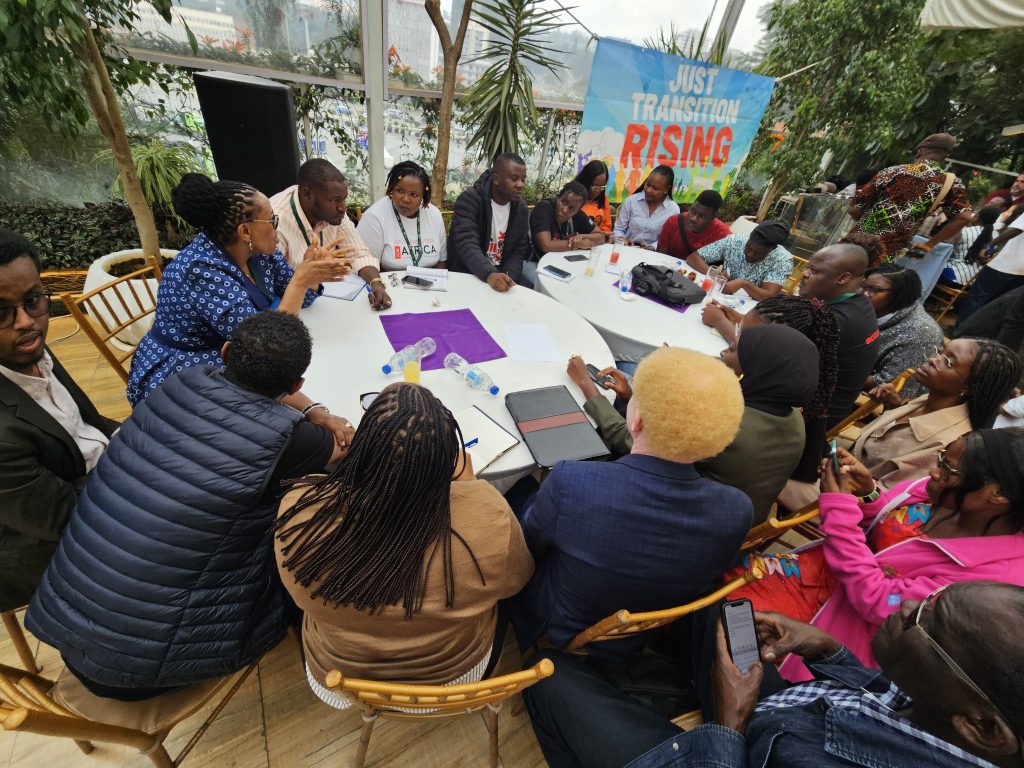
FEMNET at the Africa Climate Summit 2025: Centering Women’s Power for Just Climate Futures
Setting the Stage in Addis Ababa
The Africa Climate Summit 2025 (ACS2), held in Addis Ababa, Ethiopia, was a defining moment for the continent to reimagine its climate future. For the African Women’s Development and Communication Network (FEMNET), the Summit was not only about policies and pledges. It was a platform to amplify feminist leadership, challenge extractive systems, and advance an agenda that sees climate justice and gender equality as inseparable. From 4th to 10th September 2025, FEMNET hosted events, engaged partners, and elevated feminist voices that demanded systemic change for just climate futures.
The Africa Feminist Just Transition Forum: Feminist Pathways for Change
On 4th and 5th September, FEMNET convened the Africa Feminist Just Transition Forum, the first of its kind, to frame feminist priorities ahead of ACS2. The gathering brought together grassroots women leaders, activists, policymakers, and climate innovators from across Africa to interrogate what “Just Transition” truly means. Conversations moved beyond technocratic language to highlight how women disproportionately bear the weight of climate impacts, through unpaid care work, subsistence farming, and resource management, while being excluded from decision-making. As one participant affirmed:
“A just transition must not only be about energy, it must be about care, equity, and dignity for our communities,” said Faustina Baokye from Ghana, while Vainola Makan from South Africa captured the urgency, “We are not asking to be included as an afterthought. We are demanding to co-create the solutions.”
The forum amplified a powerful message: a just transition must dismantle systemic inequalities, not reinforce them. It must also ensure that finance, policies, and technologies are designed to serve communities, particularly women and marginalized groups.
Gender Day: Beyond Vulnerability

H.E. André Corrêa do Lago, #COP30 President, alongside Women & Gender Constituency members.
During ACS2’s Gender Day, themed “Beyond Vulnerability: Women’s Power for Just Climate Futures”, FEMNET and partners advanced the call to reframe women’s roles in climate action. No longer should women be viewed solely as vulnerable to climate shocks; they must be acknowledged as drivers of solutions and innovation.
In one of the plenaries, Balky Buba, representing Indigenous People from Cameroon, reminded delegates: “We are not only victims of floods or droughts. We are scientists, farmers, and innovators. See us in our power, not just our pain.”
FEMNET pressed for climate finance mechanisms that are gender-responsive and accountable, ensuring resources flow to women-led initiatives on the ground. They also called for investment in social infrastructure, including health, education, and protection systems, which underpin women’s resilience. The theme of moving “beyond vulnerability” resonated as a rallying cry for governments and institutions to shift from symbolic gestures to actionable commitments.
Side Events and Advocacy: Elevating Feminist Priorities
Throughout the week, FEMNET co-hosted and participated in side events and panels that highlighted the intersection of gender and climate justice. Discussions underscored women’s innovations in renewable energy, adaptation practices, and community-driven climate solutions.
At a session on climate finance, one speaker was candid: “If the money never reaches the women at the grassroots, then climate finance is just another broken promise.”
Others stressed the need to strengthen local capacity so that women can shape, manage, and benefit from climate investments. As Jessica Sessay put it, “Capacity building is not charity. It is justice. Give us the tools, and we will deliver solutions.”
By consistently bringing feminist demands into diverse ACS2 spaces, FEMNET ensured that the systemic dimensions of climate justice, equity, care, and capacity were not sidelined.

Participants during The Africa Peoples’ Just Transition, Climate & Development Declaration Forum
A Broad Call for Systemic Transformation
FEMNET’s engagements at ACS2 culminated in a clear and urgent call to action: climate justice requires more than incremental shifts; it demands systemic transformation.
On climate finance: Move beyond rhetoric to ensure resources are predictable, gender-responsive, and reach women on the frontlines.
On capacity: Invest in building the skills, knowledge, and leadership of women and grassroots communities to drive climate solutions.
On care work: Recognize and redistribute the burden of unpaid care, ensuring that transitions to new economies account for social reproduction as much as for energy production.
On systemic approaches: Break down silos across sectors—agriculture, energy, health, and social protection—so that policies reinforce one another and deliver holistic solutions.
As H.E. Doris Mpoumou, Special Representative of UN Women to the African Union, summarized during the closing session, “The climate crisis is systemic, and so must be our solutions. Anything less is injustice.”
Looking Beyond the Summit
While FEMNET’s interventions shaped the tone of ACS2, the true test lies in the follow-through. Declarations will only matter if governments and institutions deliver on commitments with transparency and accountability. FEMNET and its partners are poised to continue monitoring progress, mobilizing networks, and sustaining advocacy that keeps feminist priorities at the heart of climate action.
In her opening remarks, Memory Kachambwa, FEMNET’s Executive Director, emphasized that grant-based funding is not charity but justice, which is essential for climate adaptation and addressing the disproportionate impacts on women. She called for funding that tackles systemic inequalities and highlighted alternative models, such as those outlined in the Feminist Just Transition position paper, as pathways to equitable climate finance.
FEMNET’s presence at the Africa Climate Summit 2025 was a strong reminder that just climate futures cannot be achieved without feminist leadership. Through the Africa Feminist Just Transition Forum, active participation on Gender Day, and side events with partners, FEMNET advanced a vision where justice, care, and equality are non-negotiable pillars of climate solutions.
As the dust settles on ACS2, the message remains clear: a just transition must be feminist, systemic, and rooted in equity. Anything less will leave Africa’s women and communities behind, and the world cannot afford that.
